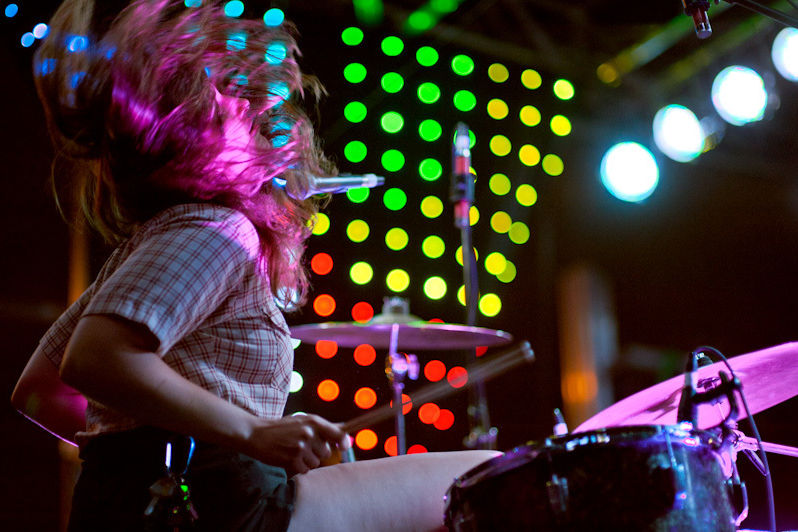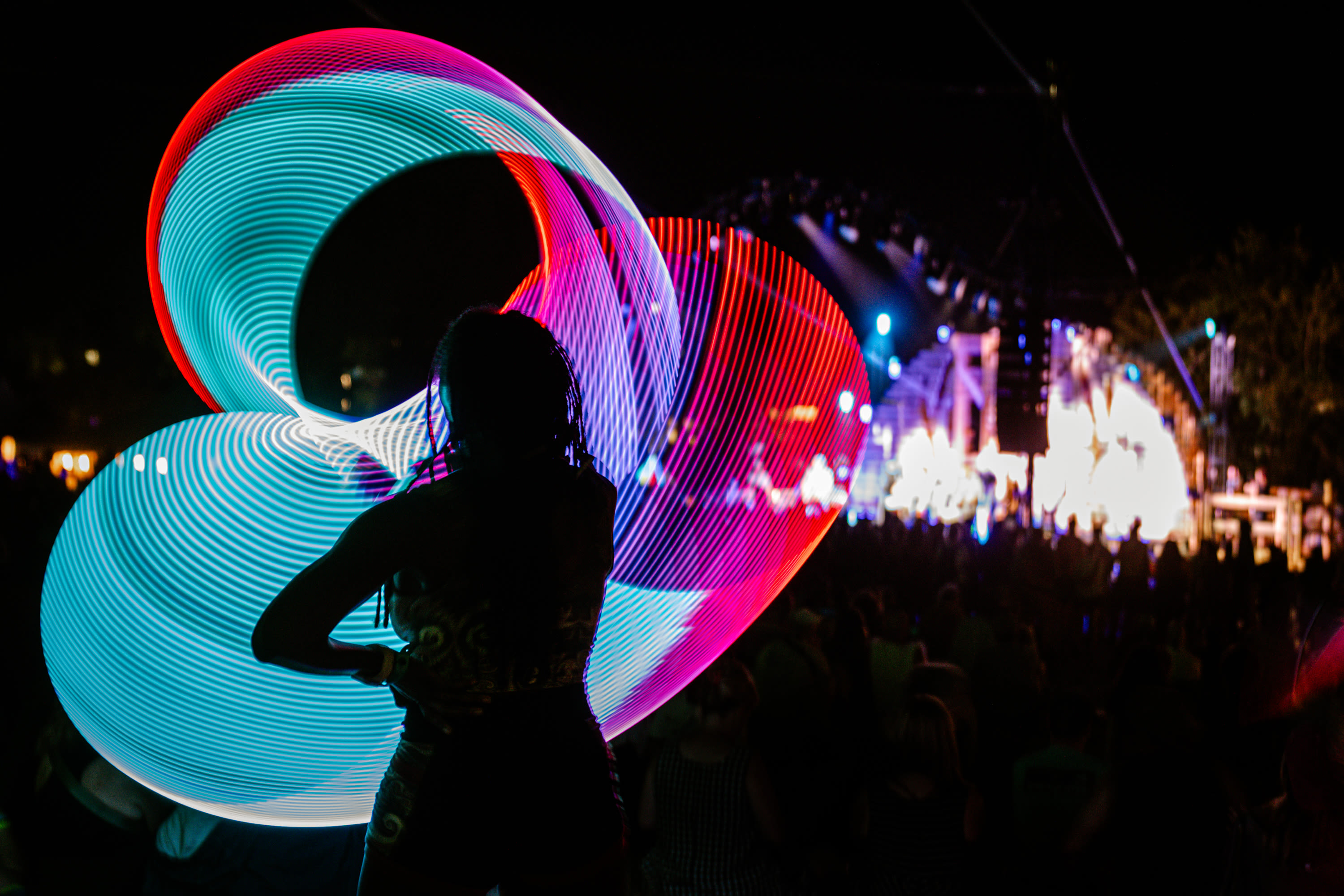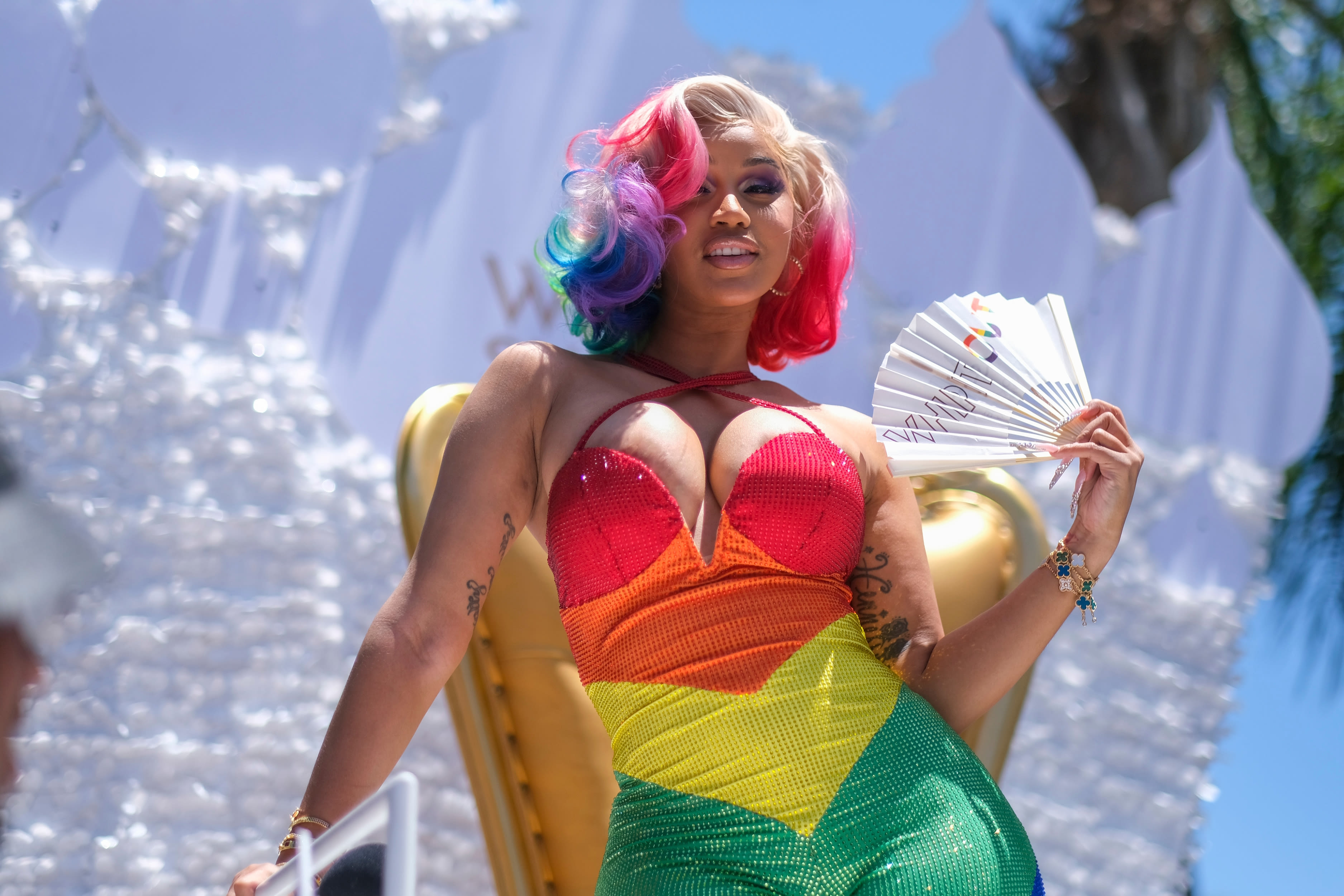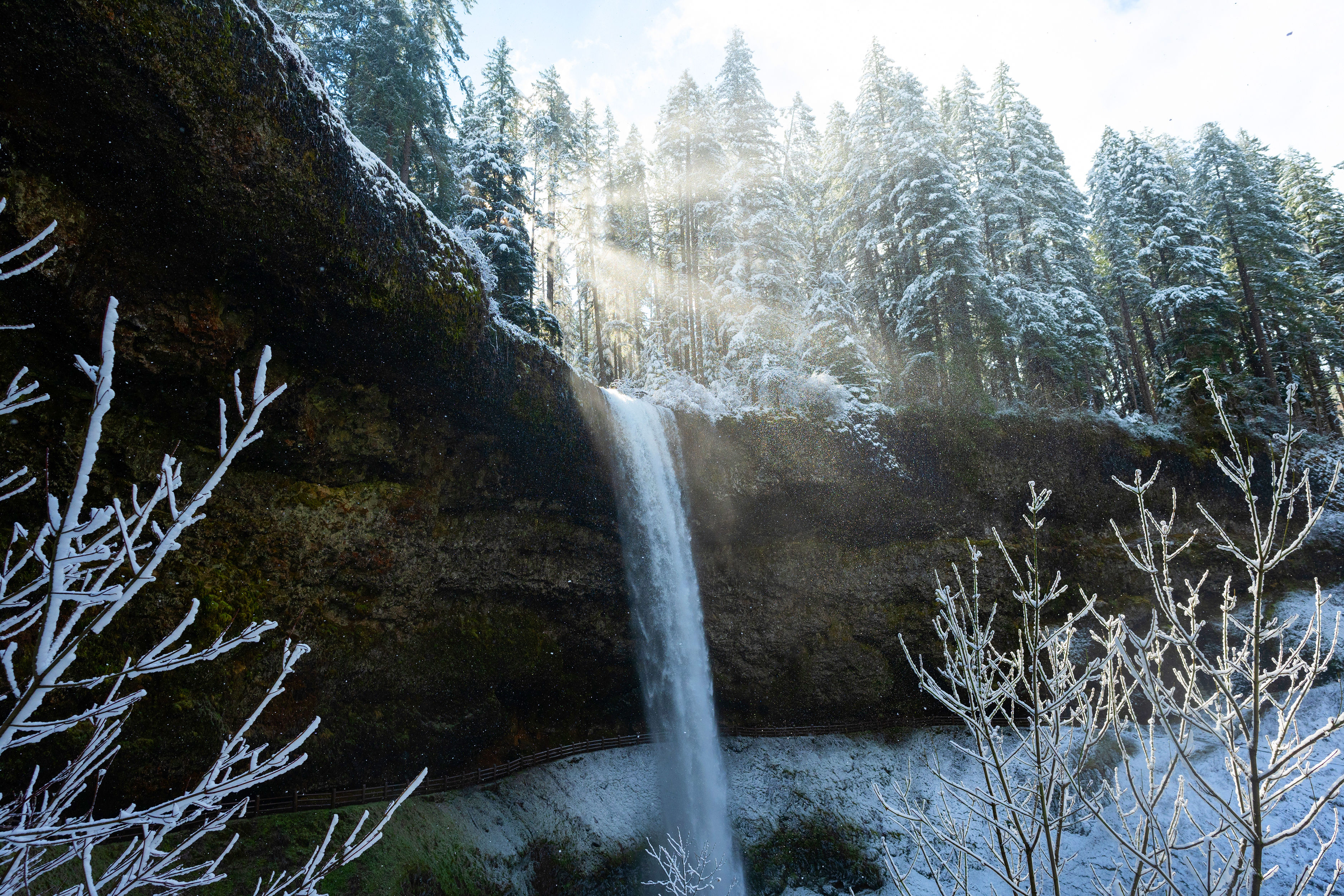PDX Pop Now Turns 10
The PDX-POP listserv was mostly for posting “my amp’s busted” or “I saw this amazing show.” Then in 2003, we started a thread noting that Portland bands were selling out shows around the country but playing to just six friends here. Thirty people showed up to a meeting at the Lucky Lab to talk about how to engage people, and the idea we rallied around was a local music festival. The concept was: lets remove as many barriers as possible to finding a way into the local music community. Let’s make it free, all ages, and in one centrally located event. —Cary Clarke, PDX Pop cofounder who went on to be the arts policy director for former Mayor Sam Adams
Every summer for the past nine years, PDX Pop Now! has sonically saturated a July or August weekend with Portland bands. Some are big names, others have never played live before; some pluck banjos, others thrash guitars or tap laptops. At 480 acts and counting, the festival offers an annual snapshot of Portland’s ever-shifting music scene, while the concomitant compilation has become the city’s unofficial musical archive.

The audience for Dykeritz in 2008
Image: Courtesy Jason Quigley
Growing out of the PDX-POP e-mail Listserv, the organization began with a roomful of musicians and music fans in 2004. “The concept was: let’s remove as many barriers as possible to finding a way into the local music community,” says cofounder Cary Clarke. “Let’s make it free, all ages, and in one centrally located event.”
Despite the fact that none of the organizers had experience putting on such an event, the first festival, staged at the all-ages club Meow Meow (now Branx/Rotture) in the inner industrial Southeast, was an exhilarating success. While nationally touring acts such as the Minders and the Joggers anchored the lineup of 44 bands, PDX Pop has always operated under an ethos of equality, eschewing the title “headliner” or the limitations of genres. As a result, breakthroughs emerge every year. In 2008, no one on the compilation listening committee had heard of Y La Bamba, but the band received the committee’s highest vote and went on to charm national audiences and National Public Radio. In 2008, a video of Liv Warfield’s performance of “Gimme Shelter” was sent to Prince, who hired her as a singer in the New Power Generation. In 2012, the artistic director heard the bedroom recordings of Dan Vidmar and encouraged him to put together a band, and Shy Girls was born, going on to win Willamette Week’s Best New Band less than a year later. (Indeed, PDX Pop seems a requisite step for all Best New Bands.)
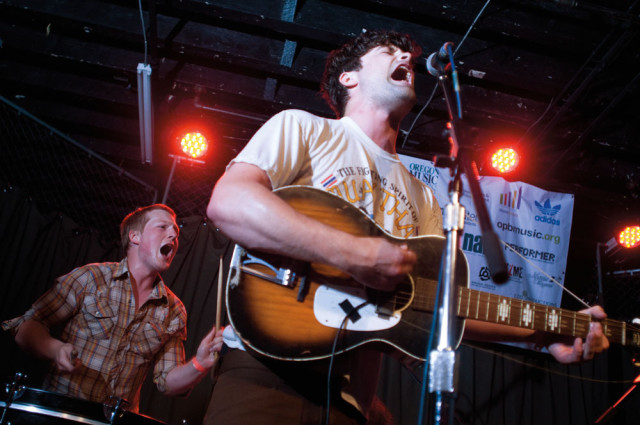
And And And in 2010
Image: Courtesy Inger Klekacz
“PDX Pop is where I’ve discovered tons of bands for the very first time,” says OPB Music host Jeremy Petersen, ticking off a list of groups while recalling how he used to play the compilations as a DJ in Idaho. “The fact that bands who are just starting out can be on a compilation alongside the Decemberists and the Shins is a big deal. It puts them on the national radar.”
Still run entirely by volunteers, PDX Pop nevertheless has grown from the ecstatic chaos of its inaugural weekend into a potent and polished nonprofit. Besides offering one of the only venues where people under 21 can see the city’s bands, the organizers are taking their all-access mission one step further by bringing those bands and music education into the area’s more impoverished schools. As Portland’s only nonprofit with a board almost entirely under 35, it has also become an incubator for young arts leaders. Clarke went on to be former mayor Sam Adams’s arts and culture policy director, while recent PDX Pop board members now run the Willamette Week Give! Guide and lead the fundraising for the youth-empowerment nonprofit Girls Inc. To Larry Crane—owner of Jackpot! Recording Studio, the only business to sponsor the festival since the start—the most striking feature of PDX Pop has been the successful and seamless handoff of leadership through the years: none of the founders are still involved. “That’s something I would’ve doubted as I sat down with the founders 10 years ago.”
After outgrowing Branx/Rotture, the festival moved to the more polished warehouse event space Refuge in 2010 and upped its production values. This summer, it seeks to expand even more by transforming an empty Southeast lot by the Willamette into a sanctuary of sound. From that perch, the water will carry the music across the city, helping lay the foundation for new generations to shape the PDX Pop Now! of the future.
A preview playlist of some of this year's bands:
